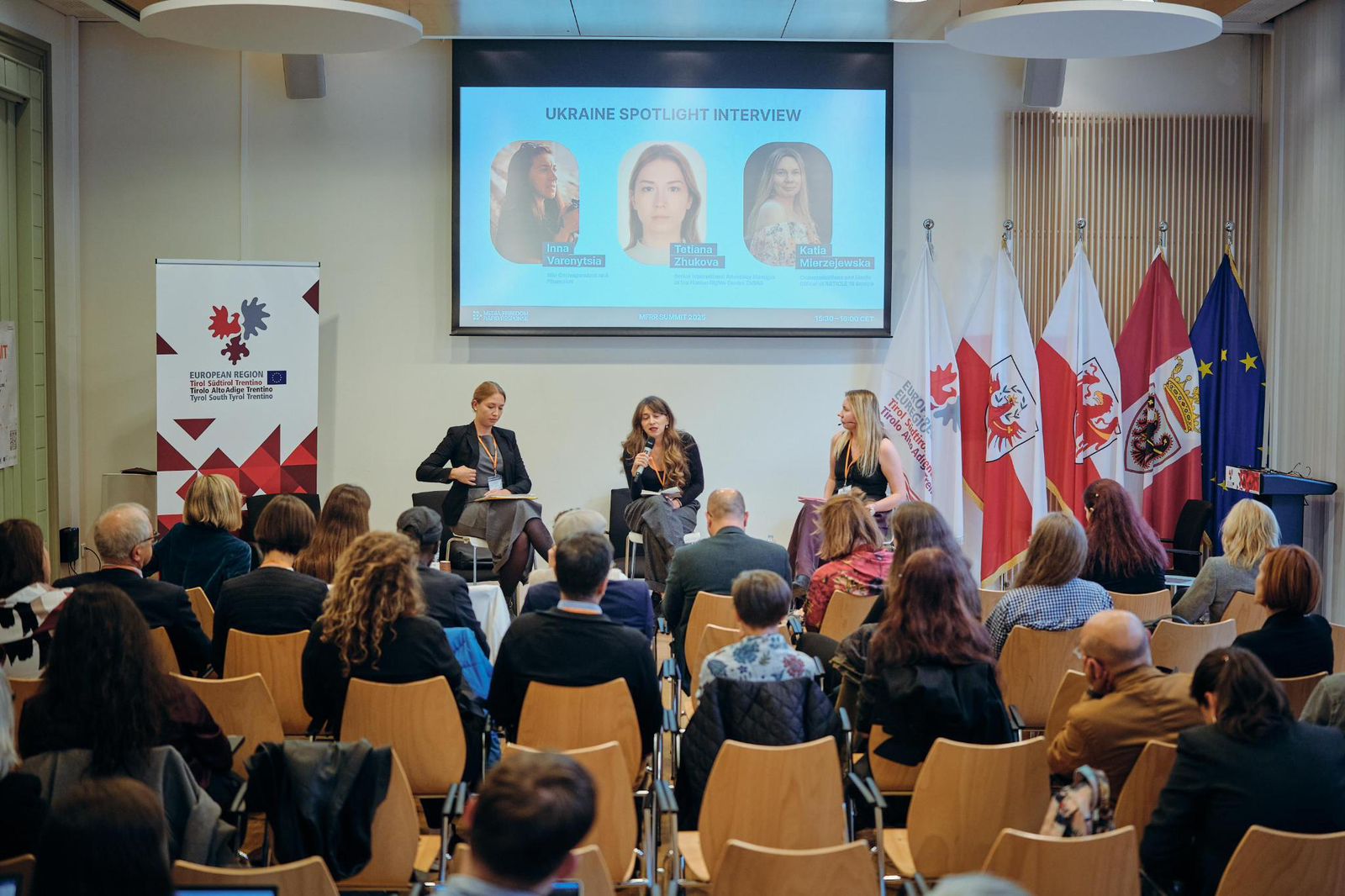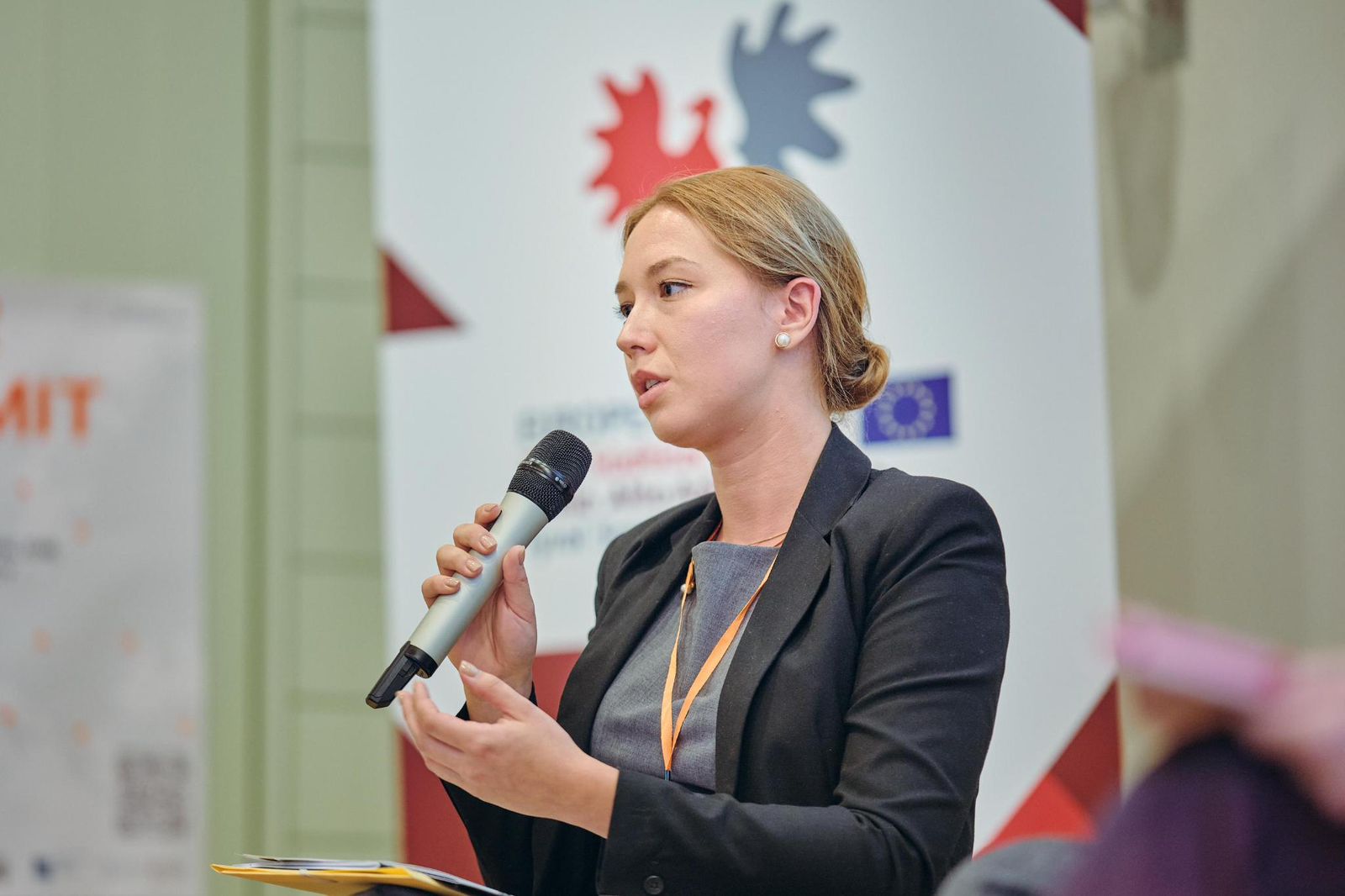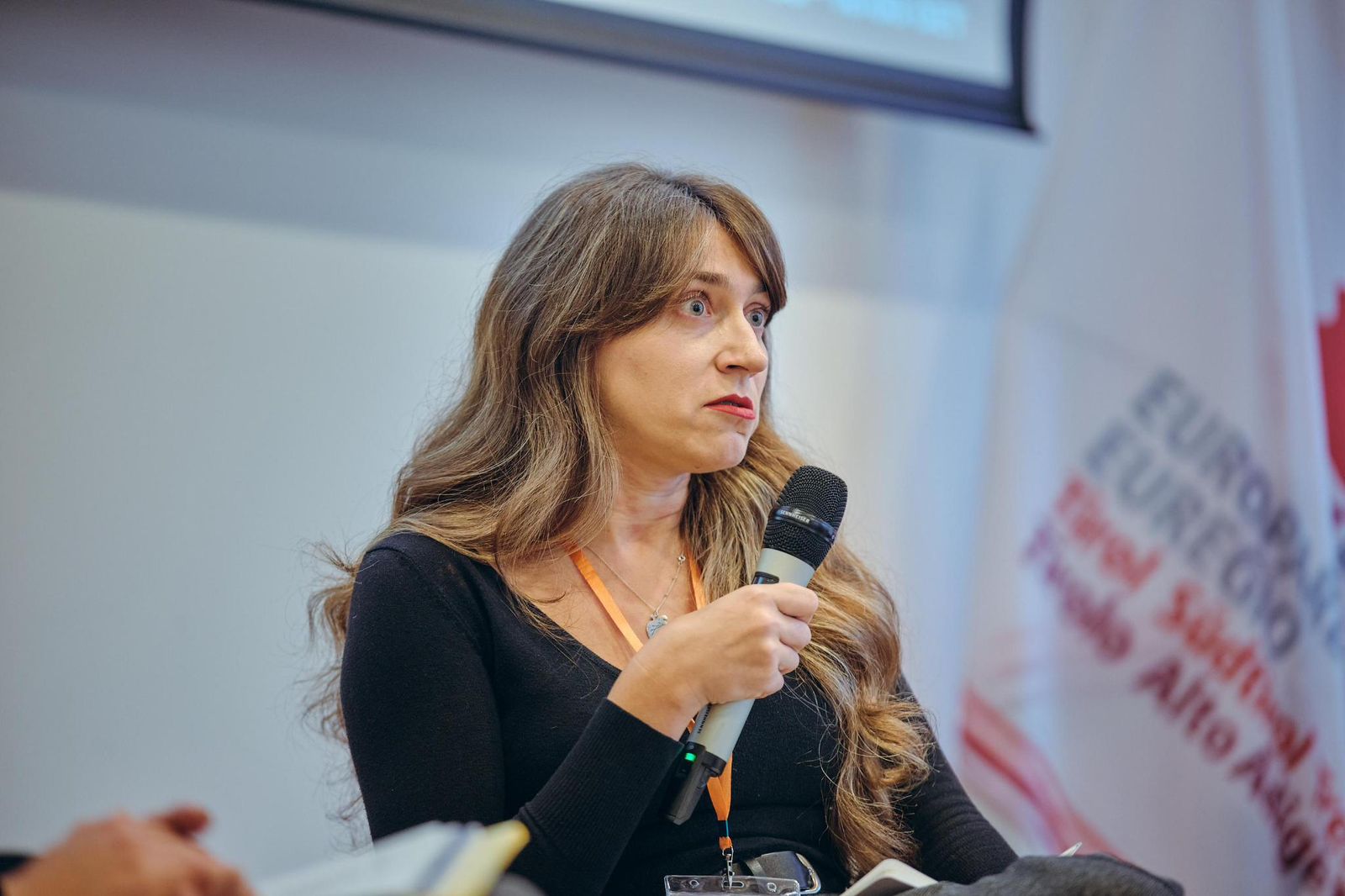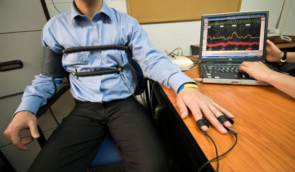ZMINA’s Tetiana Zhukova speaks out for Ukrainian journalists at the MFRR Summit in Brussels
At the Media Freedom Rapid Response (MFRR) Summit 2025, held in Brussels, Tetiana Zhukova, International Advocacy Manager at the Human Rights Centre ZMINA, delivered a message about the systematic repression of journalists by the Russian Federation in Ukraine and occupied territories.

Summit brought together journalists, policymakers, and civil society representatives to address the urgent challenges facing press freedom in Europe. In this setting, Zhukova highlighted the reality faced by media workers living and working under Russian armed aggression. “Since 2014, we have documented a systematic policy by the Russian Federation to target journalists. Their value is enormous – they show the world the true face of the Russian regime, tell the stories of its victims, and prove that resistance has not been silenced, even after eleven years of occupation,” Zhukova explained.
According to civil society’s documentation, the number of independent media outlets in Crimea has fallen by 88% in just the first year of the occupation; this space was replaced with Russian propaganda. Access to Ukrainian media and social platforms such as Facebook and Instagram has been blocked under occupation, and independent voices are silenced through cyberattacks and attacks on television towers and media offices.
At least two such attacks happened this September. In the centre of the Ukrainian city of Kherson, the worker of media “Suspilne Kherson” Vadym Khomenko was blown up by a Russian mine, which was deliberately thrown from a Russian drone at the media office.
The cyberattack was carried out against the influential media “Ukrainska Pravda”. The account of its journalist, Yana Matviychuk, was hacked, and a fake article, discrediting the Armed Forces of Ukraine, was posted on her behalf. It was directly adopted by Russian disinformers, who began featuring it in their propaganda — this case clearly demonstrated the premeditated nature of this cybercrime.
Moreover, journalists are labelled “foreign agents”, detained outside courthouses, and banned from covering politically motivated trials. One of the examples includes the pressure on the Crimean newspaper Kyrym, fined for publishing a UN report mentioning the Crimean Tatar people.

Media workers also face searches, fines, fabricated criminal cases, and even imprisonment – there are 26 Ukrainian journalists behind bars in Russian prisons. They are convicted of alleged “espionage”, “extremism” and “terrorism” with 5 to 19 years-long sentences. In some cases, there is a continuous double persecution: the Crimean journalist Dmitry Shtyblikov, after serving five years in a Russian prison on politically-motivated charges, received a new sentence of 19.5 years for alleged “high treason”.
Tetiana reminded the audience that such repression often comes hand-in-hand with torture, inhumane treatment and denial of medical assistance in detention. She told the story of the citizen journalist Iryna Danylovych, who lost her hearing because of the detention conditions, and cited the testimony of the recently released journalist Dmytro Khyliuk, who described freezing in his cell, eating toothpaste to fight hunger, and being tortured with electric shocks.
“The bright lights were never turned off, and loud Soviet songs were played to psychologically break us. We were constantly beaten, tortured with electric shocks and forced to sing the Russian anthem,” Khyliuk recounted a chilling example of how far the regime goes to break the will of those who dare to speak the truth.
Some never return alive from Russian torture chambers, as happened to journalist Viktoria Roshchyna, who the Russians killed behind bars. Since the start of the full-scale invasion, at least 133 media workers have been killed — 19 while performing their professional duties, 10 as civilian victims, and 104 while serving in Ukraine’s Armed Forces. Among them was French journalist Anthony Lallikan, killed in a Russian drone strike this October, which also seriously injured his colleague Heorhii Ivanchenko. Lallikan was not the only foreign journalist who was murdered while trying to cover Russian atrocities – media representatives from France, Ireland, Lithuania, Poland, the UK, and the USA also lost their lives.
“For Russian forces, a jacket marked PRESS is like a red rag to a bull, even though it must убезпечувати медіа працівників від атака, according to international humanitarian law,” Zhukova said.

Sharing the panel with Zhukova was Inna Varenytsia, a Ukrainian war correspondent and filmmaker. Moderated by Katia Mierzejewska, Communications and Media Officer at ARTICLE 19, the discussion centred on personal stories of courage and loss. Varenytsia spoke about the murder of her ex-husband, renowned photojournalist Maksym Levin, by Russian soldiers in 2022, and about surviving a Russian drone strike that hit her civilian car while she was reporting from the front lines.
Speakers called for stronger international solidarity with Ukrainian journalists and for concrete action from policymakers to ensure their safety. Independent journalists continue to expose international crimes and tell the truth despite risks. The least the world can do is to become their voice.
The MFRR is organised by an alliance led by the European Centre for Press and Media Freedom (ECPMF), including ARTICLE 19 Europe, the European Federation of Journalists (EFJ), Free Press Unlimited (FPU), International Press Institute (IPI) and CCI/Osservatorio Balcani Caucaso Transeuropa (OBC Transeuropa).
If you have found a spelling error, please, notify us by selecting that text and pressing Ctrl+Enter.















